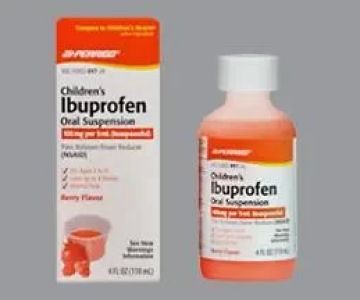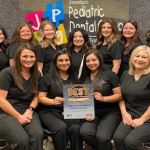Understanding Herpes Virus and Its Transmission in Children
The herpes simplex virus (HSV) is a common infection that primarily affects the skin and mucous membranes. There are two main types: HSV-1, which typically causes oral herpes, and HSV-2, which is usually responsible for genital herpes. While herpes infections are common among adults, the risk and impact on young children require careful attention, especially when it comes to modes of transmission such as oral contact.
One concern often raised is whether oral copulation, or oral sexual contact, involving young children can cause herpes virus transmission. It’s important to approach this topic with sensitivity and clarity, understanding the medical facts and social implications.
1. How Herpes Virus Can Affect Young Children
Herpes virus infections in children can occur through direct contact with an infected person’s saliva, skin lesions, or mucous membranes. HSV-1 is most commonly transmitted through non-sexual contact like kissing or sharing utensils, but in rare and unfortunate cases, it can be transmitted through oral sexual abuse.
Oral herpes in children often manifests as painful blisters or sores around the mouth, fever, irritability, and difficulty eating or drinking. If untreated, it can cause complications such as dehydration or secondary bacterial infections.
2. Risks of Oral Sexual Contact and Herpes Transmission
Oral copulation involving young children is considered a form of sexual abuse and is illegal and harmful. Such contact can indeed result in transmission of herpes simplex virus, as the virus is present in the saliva and mucosal secretions of infected individuals.
In these tragic cases, the risk of herpes transmission is higher because the mucous membranes of children are more vulnerable, and their immune systems are less developed compared to adults. The presence of open sores or cuts can further increase the likelihood of infection.
3. Recognizing Symptoms of Herpes in Children
Early detection of herpes infection in children is critical. Parents and caregivers should watch for symptoms including:
- Blisters or sores on or around the mouth
- Pain or itching sensation in affected areas
- Fever and swollen lymph nodes
- Difficulty swallowing or refusal to eat
- General irritability or lethargy
If any of these signs appear, it’s important to seek medical evaluation promptly to confirm diagnosis and initiate treatment.
4. Medical Treatment and Care for Herpes in Children
While there is no cure for herpes simplex virus, antiviral medications such as acyclovir can reduce the severity and duration of outbreaks. Supportive care, including pain relief and hydration, is also essential.
Healthcare providers may tailor treatments based on the child’s age, severity of symptoms, and overall health status. Early intervention can significantly improve outcomes.
5. Prevention and Protecting Children from Herpes Transmission
Preventing herpes virus infection in children primarily involves avoiding exposure to infected bodily fluids or lesions. This includes:
- Avoiding kissing children if the person has active cold sores
- Not sharing utensils, cups, or towels with children when the adult is infected
- Ensuring proper hygiene and handwashing around children
- Being vigilant against any form of abuse and seeking immediate help if suspected
Educating caregivers and families about herpes transmission routes and safe practices is vital for protection.
6. Real Cases Highlighting the Importance of Awareness
In one reported case in the United States, a young child developed severe oral herpes after exposure to an infected caregiver who had cold sores. Timely diagnosis and treatment prevented serious complications, but the case emphasized the need for awareness and preventive measures in caregiving environments.
Another story involved legal and medical intervention after a child was diagnosed with herpes linked to abuse, highlighting the critical role of multidisciplinary teams in protecting children’s health and rights.
7. When and Where to Seek Help
If you suspect your child may have been exposed to herpes virus through oral contact or show symptoms consistent with infection, consult a pediatrician or infectious disease specialist immediately. Early diagnosis is essential for effective management.
For trusted guidance and services related to oral health and infection prevention, Dentistry Toothtruth offers expert care and resources tailored to families and children’s needs.






 North Shore Smiles Pediatric Dentistry5.0 (52 review)
North Shore Smiles Pediatric Dentistry5.0 (52 review) Kwong Orthodontics4.0 (10 review)
Kwong Orthodontics4.0 (10 review) SouthWest Dental Center4.0 (7 review)
SouthWest Dental Center4.0 (7 review) Sunbrite Dental4.0 (1409 review)
Sunbrite Dental4.0 (1409 review) East Valley Dental Care4.0 (618 review)
East Valley Dental Care4.0 (618 review) Jonesboro Pediatric Dental Group4.0 (77 review)
Jonesboro Pediatric Dental Group4.0 (77 review) The Importance of Oral Health Education During Pregnancy for a Healthy Pregnancy
The Importance of Oral Health Education During Pregnancy for a Healthy Pregnancy Best Tips for Brushing Your Teeth Properly for Healthy Gums: Essential Techniques for Oral Health
Best Tips for Brushing Your Teeth Properly for Healthy Gums: Essential Techniques for Oral Health Why Skipping Dental Checkups Can Lead to Bigger Oral Health Problems
Why Skipping Dental Checkups Can Lead to Bigger Oral Health Problems Advantages of Porcelain Dental Restorations
Advantages of Porcelain Dental Restorations How Can Diabetes Cause Tooth and Gum Problems? Preventing and Managing Oral Health Issues
How Can Diabetes Cause Tooth and Gum Problems? Preventing and Managing Oral Health Issues Healthy Habits for Promoting Good Oral Health and Hygiene: Tips for a Healthy Smile
Healthy Habits for Promoting Good Oral Health and Hygiene: Tips for a Healthy Smile